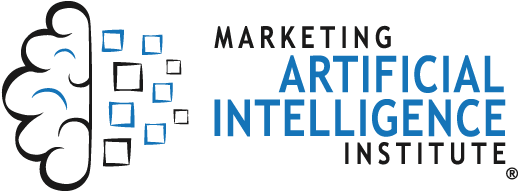
AI + You
In a single sentence or statement, tell us what you do.
I help companies transform and create sustained competitive advantage through innovative applications of artificial intelligence, advanced analytics and data engineering.
How do you define AI? (Or, what’s your favorite definition of AI?)
It is a computer system that is able to perform tasks normally requiring “intelligence,” such as visual perception, speech recognition, decision-making, etc. These are systems that can act, learn and reason.
Sundar Pichai, Google’s CEO, has stated that, “AI is probably the most profound thing humanity has ever worked on.” Do you agree? Why, or why not?
Yes, because until now we have externalized (from our body) physical things such as moving (cars) or lifting (inclined planes or pulleys). In the past, we have externalized mental things such as memory (pen and paper). Each of these has had profound impacts on humanity and civilization. Externalizing learning and thinking will have a greater impact because this was the thing that allowed us to create all the previous amazing things!
How did you get started in AI?
I was always interested in analytics and mathematical models of the world from when I was very young. I studied physics because of this, but wanted to work on near term applications in the real world. This led to interest in mathematical modeling in business, quant modeling in financial services, and eventually AI.
"Most leading companies are becoming more customer-centric, and becoming better businesses in every way, through AI-driven digital transformation."
What’s your favorite example of AI in your daily life that most consumers take for granted, or don't even realize is made possible by AI?
SPAM email filters! They work well because they are using a form of AI. Otherwise email would have become useless by now.What excites you most about AI?
The most exciting thing is its potential to have an immensely positive impact on billions of people in the next decade. Most leading companies are becoming more customer-centric, and becoming better businesses in every way, through AI-driven digital transformation. Their billions of customers will receive the benefits.
What worries you most about AI? How could it go wrong?
I don’t worry much about superintelligence—it is still far away. I worry about two things: one is the use of AI to create cybercrime unicorns. The average physical bank robbery took $4,300 (per the FBI). AI allows, for example, financial cybercrime to steal billions at a go. Then these criminal outfits have the resources to build the next big cybercrime startup and so on. It could be a runaway disaster in the way VC funding and AI startups have been a runaway success, financially speaking.
The other is inadvertent negative impacts. It is harder (not impossible) to inadvertently build individual applications the old-fashioned way because humans have to manually craft the rules. AI algorithms learning from data many not have enough governance in place to manage this.
For example, most banks that managed quantitative trading have large "model risk management" groups to monitor models, and still many issues arise. Most other companies (e.g. retailers), do not have model risk offices. For them to move to this level of maturity will require acting ethically proactively. We also need to answer questions of how this will be regulated or monitored, because companies operate in multi-jurisdictional regulatory environments.
What do you think is the biggest misconception about AI?
It is about how AI works and what it can do. Some people think it is purely a gimmick with no business impact. Others think it is magical and can do anything. Both misconceptions are unhelpful.What skill or trait do you believe has the greatest chance to remain uniquely human for the foreseeable future?
The pursuit of happiness! And also the ability to reason (at least for the near future).
What is a recent advance in AI that blew your mind?
A few examples are very impressive—the NLP technology that passed an 8th grade science test, the GAN that was able to generate new drug ideas in a few days instead of a few years, and self-driving cars.
When you drive, if you pay attention to the thousands of micro-decisions that you are making based on reasoning, reflex and other instincts, it's mind-boggling. In the process of getting a safe self-driving car on the road, we will have dramatically advanced the field of AI. I believe this is where the next generation of AI will be developed, and then reused elsewhere.
"The vendor needs to be able to explain in plain language how it works and why it would be better.
If the vendor cannot explain this to your satisfaction, it is likely hype (or they don’t understand it and hence won’t succeed)."
If you were entering college, knowing what you know now, what would you study?
Most likely computational art using AI (a field that is just emerging).
If you were the dean of a business school, what is one thing you would do right now to start better preparing students for the intelligently automated future?
I would nudge the curriculum towards learning how to run an algorithmic enterprise. It would include a set of courses to create a deeper understanding of how AI works, how to develop AI strategies, set up and manage model governance, etc.
Marketing + AI
What advice would you give to marketers looking to pilot AI in their organizations?
Start with a few use cases and build those out using AI. It may be about how to reduce churn, how to maximize cross sell and up sell, etc. Look for what challenges to address through the-end to-end process—in talent, in data, in modeling, in adoption, etc. Then scale with solutions to these in mind.
What is the biggest challenge marketers should plan for as they scale AI?
Adoption—building the models and platforms is now easier (but not easy!) than transitioning existing marketing employees in using these tools. This transition has to be planned for.
What question(s) would you advise marketers ask vendors who claim to have AI-powered technology?
The vendor needs to be able to explain in plain language how it works and why it would be better.
If the vendor cannot explain this to your satisfaction, it is likely hype (or they don’t understand it and hence won’t succeed).
This kind of discussion requires a two-way deep dive. You need to tell the vendor how things currently work, and they can show where there will be a difference and why.
What percentage of marketing tasks will be intelligently automated to some degree in the next five years?
- 0%
- 1 – 10%
- 11 – 25%
- 26 – 50%
- 51 – 75%
- 76 – 99%
- 100%
Which three marketing categories will experience the greatest disruption from intelligent automation in the next five years?
- Account-Based Marketing
- Advertising
- Analytics
- Communications
- Content Marketing
- Conversational
- Customer Service
- Data Management
- Email Marketing
- Public Relations
- Research
- Sales
- Search Engine Optimization (SEO)
- Social Media Marketing
- Strategy
- Other: I think everything except Strategy, Communication and maybe Data Management.
What’s one marketing job you see AI fully automating and eliminating in the next five years?
Process from audience creation to activating campaigns.
What’s one marketing job you see AI creating that doesn't exist today?
Optimizers—people fine tuning the end to end marketing system and generating ideas for how to improve the system.It is analogous to how in the past the supply chain planning and optimization was manual. Now it is all automated, but there is a new role for people who change the parameters of the network to improve results.What can marketers do to ensure the ethical use of AI in their marketing?
Set policies for model governance and ensure these are adhered to. Any model needs to be assessed before it goes into production and monitored thereafter.
How can brands achieve personalization without invading privacy?
This is an unresolved question—both in academic research and in the marketplace. The current opt-in model is also not working (nobody reads or understands what they are saying “accept” to). Gillian Hadfield at the Reisman Institute (among others) are working on these problems. One idea is to give individuals control of their data and they decide granularly who gets it.
How can brands become more human as they intelligently automate tasks and roles?
The emerging field of cognitive experience design (taking off from cyborg anthropology) will be important in this. Some applications are emerging that are trying to do this more.
The approach to this is to understand the decisions and actions more intentionally so that they can be crafted better. E.g. the example from Target where they could predict that the customer is pregnant very accurately (model worked!), but you should not always act on it directly. You need to think through the empathic scenarios to decide when to act on that prediction vs. not.
It is very, very important to get educated on AI and software in general. A great book is “How to Speak Machine” by John Maeda.
What resource(s) would you recommend to marketers who want to understand and apply AI?
AI business books (mine comes out from Wiley in Q2 of 2020). MIT’s AI Strategy online course. Andrew Ng’s AI course called “AI for Everyone.”
Rapid Fire
Voice assistant you use the most?
- Alexa
- Google Assistant
- Siri
- Don’t use voice assistants
- Other
Preferred cloud for building AI solutions?
- Amazon Web Services (AWS)
- Google Cloud
- Microsoft Azure
- Don’t use or prefer any of them
- Other
Best guess, how long until we achieve artificial general intelligence (AGI)?
- 1 – 5 years
- 6 – 10 years
- 11 – 20 years
- 21 – 50 years
- 51+ years
- Never
Net effect over the next decade?
- More jobs eliminated by AI
- More jobs created by AI
- AI won’t have a meaningful impact on jobs
What does an AI agent win first (or at least share with a human)?
- Nobel Peace Prize
- Oscar
- Pulitzer
- Won’t win any of the above
Favorite AI movie?
On the one hand, they are all horrible misrepresentations perpetuating myths. On the other hand, many are entertaining!
Favorite AI book?
Deep Learning by Bengio, Goodfellow and Courville.
Favorite AI-powered marketing technology your company uses that regularly reduces costs and/or increases revenue?
Bespoke AI models using Adobe DS Workbench and Sensei.
Favorite piece of AI content you've created that you'd like to share with our readers? Include any relevant links.
- Not all AI is created equal
- How AI's Transformative Impact on Decision-Making Is Accelerating
-
Communications Leaders Rally Around Artificial Intelligence, According to Global Survey
Final Thoughts
Any final thoughts on AI for our readers?
It is very, very important to get educated on AI and software in general. A great book is “How to Speak Machine” by John Maeda.
